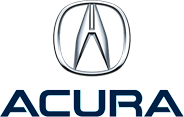Electric cars are becoming increasingly popular as society strives towards a more sustainable and eco-friendly future. With their unique design and cutting-edge technology, one might wonder if electric cars have transmissions. Electric cars do not require transmissions in the traditional sense, some models do incorporate specialized single-speed transmission systems to enhance efficiency and performance while others utilize a direct-drive system.
Understanding the Role of Transmissions in Vehicles
Before we discuss the presence of transmissions in electric cars, let’s first understand the traditional function of transmissions in combustion engines.
Transmissions are a vital component in the operation of vehicles with internal combustion engines. They serve the purpose of transmitting power from the engine to the wheels, allowing the vehicle to move. By providing different gear ratios, transmissions enable the engine to operate effectively at various speeds, ensuring optimal performance and fuel efficiency.
Traditional Function of Transmissions in Combustion Engines
In traditional vehicles with internal combustion engines, transmissions play a crucial role in delivering power to the wheels. They allow the engine to operate efficiently at different speeds by providing multiple gear ratios. This ability to change gears ensures optimal performance across various driving conditions.
Furthermore, transmissions in combustion engine vehicles are designed to handle the torque produced by the engine, ensuring that the power is transmitted smoothly to the wheels without causing damage to the drivetrain components. This seamless transfer of power is essential for the overall functionality and longevity of the vehicle.
How Transmissions Work in Hybrid Vehicles
Hybrid vehicles, which combine an internal combustion engine with an electric motor, also incorporate transmissions. However, in this case, the role of the transmission is slightly different. It primarily focuses on coordinating the power delivery between the conventional engine, the electric motor, and the wheels.
The transmission in hybrid vehicles allows for seamless transitions between electric and gasoline power, as well as optimizing fuel efficiency and overall performance.
Moreover, in hybrid vehicles, the transmission plays a crucial role in managing the complex interaction between the different power sources, ensuring smooth acceleration and deceleration while maximizing the benefits of both the internal combustion engine and the electric motor. This intricate coordination is essential for achieving the desired balance between performance and efficiency in hybrid vehicles.
The Mechanism of Electric Cars
Electric cars, on the other hand, have a fundamentally different mechanism compared to traditional combustion engine vehicles. Understanding this mechanism is crucial in determining whether electric cars require transmissions.
Electric vehicles (EVs) are revolutionizing the automotive industry with their innovative technology and eco-friendly operation. One key component that sets electric cars apart is their regenerative braking system, which allows them to convert kinetic energy into stored energy in the battery. This feature not only enhances efficiency but also prolongs the lifespan of the braking system, reducing maintenance costs for EV owners.
The Role of Electric Motors
At the heart of an electric car is an electric motor, which is responsible for converting electrical energy from the battery into mechanical energy to propel the vehicle forward. Unlike an internal combustion engine, electric motors can generate high torque from standstill, eliminating the need for gear shifting in most driving scenarios.
Furthermore, electric motors offer a quieter and smoother driving experience compared to traditional engines, enhancing overall comfort for passengers. The instant torque delivery of electric motors provides responsive acceleration, making EVs a popular choice for drivers seeking a dynamic and efficient driving experience.
Battery and Power Management in Electric Cars
Electric cars rely on powerful batteries to store and deliver energy to the electric motor. These batteries are capable of providing a consistent and continuous flow of power, allowing for smooth acceleration without the need for multiple gears.
In addition to their advanced batteries, electric cars utilize sophisticated power management technology to regulate the flow of energy and optimize performance. This further negates the need for transmissions in these vehicles.
The integration of smart charging systems in electric cars enables users to schedule charging times during off-peak hours, reducing electricity costs and minimizing strain on the power grid. This level of control and efficiency showcases the adaptability and intelligence of electric vehicle technology, paving the way for a sustainable future in transportation.
Transmissions in Electric Cars: A Deep Dive
Understanding the nuances of transmissions in electric vehicles can shed light on the innovative engineering behind these eco-friendly modes of transportation.
Direct Drive Systems in Electric Vehicles
Direct drive systems eliminate the need for traditional transmissions by connecting the electric motor directly to the vehicle’s wheels. This design maximizes energy transfer and minimizes power loss, resulting in improved overall efficiency.
By bypassing the complexities of a multi-gear transmission, direct drive systems offer a more straightforward and streamlined approach to power delivery in electric cars.
Single-Speed Transmissions in Electric Cars
Some electric cars employ single-speed transmissions, also known as single-gear transmissions. These transmissions do not have the complex gear ratios found in traditional vehicles. Instead, they provide a fixed gear ratio that optimizes the electric motor’s performance across various driving conditions.
Single-speed transmissions in electric cars strike a balance between simplicity and performance, ensuring a smooth driving experience while maintaining efficiency.
The design of single-speed transmissions highlights the adaptability of electric vehicles, showcasing how technology can be tailored to meet the specific needs of electric propulsion systems.
Comparing Transmissions: Electric Cars vs Traditional Cars
When comparing transmissions in electric cars and traditional combustion engine vehicles, several key factors come into play.
Electric cars have been gaining popularity in recent years due to their innovative transmission systems. With direct drive or single-speed transmissions, electric cars excel in terms of efficiency. By eliminating the energy losses associated with traditional transmissions, electric cars provide a more direct power transfer from the motor to the wheels. This results in improved overall efficiency and instantaneous torque, making electric vehicles a compelling choice for eco-conscious consumers.
Efficiency and Performance Comparison
Traditional combustion engine vehicles, on the other hand, rely on complex transmissions with multiple gear ratios. While these transmissions have been refined over decades of engineering, they may still sacrifice some efficiency due to power losses associated with gear shifting. However, traditional cars are known for their power and acceleration, thanks to the versatility of their transmissions in providing different gear ratios for various driving conditions.
When it comes to performance, electric cars are known for their quick acceleration and smooth driving experience. The instant torque delivery of electric motors, combined with the seamless power delivery of single-speed transmissions, offers a driving experience that is both efficient and exhilarating.
Maintenance and Longevity: A Comparative Analysis
Another aspect to consider when comparing transmissions is maintenance and longevity. Electric cars typically have fewer moving parts compared to traditional vehicles. This translates to reduced maintenance requirements and potentially increased lifespan. With fewer components prone to wear and tear, electric car owners can enjoy lower maintenance costs and fewer visits to the mechanic.
Traditional transmissions, with their intricate mechanisms and fluid-filled components, require periodic maintenance to ensure optimal performance and longevity. Regular fluid changes, gear inspections, and adjustments are necessary to keep traditional transmissions running smoothly. While these maintenance tasks are essential, they can add to the overall cost of owning a traditional combustion engine vehicle.
The Future of Transmissions in Electric Cars
As technology continues to evolve, the future of transmissions in electric cars remains an area of active research and development.
One fascinating aspect of the ongoing research into transmissions for electric cars is the exploration of regenerative braking systems. These systems allow electric vehicles to recover energy typically lost during braking and store it back in the battery, increasing overall efficiency. By integrating regenerative braking with transmission systems, engineers are aiming to maximize energy conservation and enhance the driving range of electric cars.
Technological Advancements and Innovations
With ongoing advancements in electric motor and battery technology, the need for traditional transmissions in electric cars may become even less prevalent. Researchers are exploring novel solutions, such as motor-integrated transmissions and advanced power management systems, to further optimize efficiency and performance in electric vehicles.
Another exciting development in the realm of electric vehicle transmissions is the potential for multi-speed gearboxes. While many electric cars currently operate with single-speed transmissions, the introduction of multi-speed gearboxes could offer benefits such as improved acceleration and enhanced efficiency across a wider range of driving conditions. This innovation showcases the continuous drive towards refining the performance of electric vehicles.
Impact on the Electric Vehicle Market
The absence or minimal use of transmissions in electric cars simplifies their design and potentially reduces production costs. This, coupled with the advantages of electric propulsion, may drive the widespread adoption of electric vehicles and pave the way for a transition to a more sustainable transportation ecosystem.
Electric cars, by their design and operational characteristics, do not require traditional transmissions. The use of direct drive systems and single-speed transmissions in some models enhances efficiency and performance without compromising the inherent benefits of electric propulsion. As technology continues to progress, it is likely that the role of transmissions in electric cars will evolve further, shaping the future of transportation.


 Free Customer Towing Service
Free Customer Towing Service  Free TrueTest™ Inspection
Free TrueTest™ Inspection  Fast Transmission Services
Fast Transmission Services  Comprehensive Warranty in Denver
Comprehensive Warranty in Denver 

























